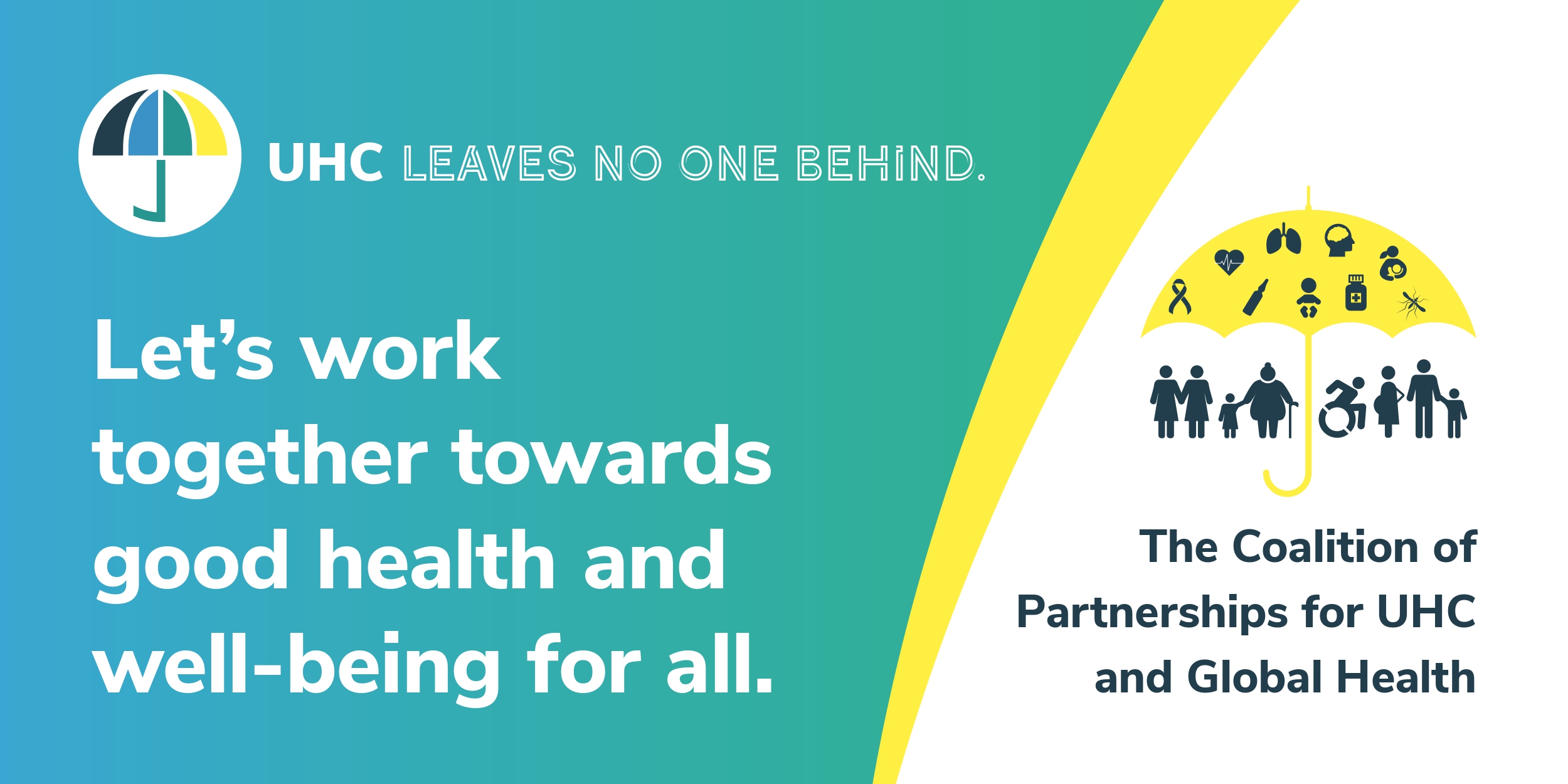For everyone to be able to fully exercise their right to health, we must ensure universal access to good quality and affordable services. At the 2019 United Nations high level meeting (UN HLM) on universal health coverage (UHC), world leaders recognised this right when they committed to ensuring that by 2030 everyone in their country would receive the quality health services they need without experiencing financial hardship. As a global community, we are not on track to meet this goal.
That is why we are establishing the Coalition of Partnerships for UHC and Global Health. Recognising the need for greater collaboration, our goal is to assist member states and other stakeholders in accelerating high level political efforts around sociopolitical accountability, supporting coordination among the various health initiatives and joint follow-up actions of UN HLMs, and strengthening existing accountability mechanisms for the sustainable development goals (SDGs).
Covid-19 has severely disrupted progress in all areas of health and reminded us of the urgent need for coordinated action and strong health systems. Even before the pandemic, the number of people with catastrophic health spending was on the rise, and covid-19 has aggravated this trend. It has also worsened the effects of non-communicable diseases, limiting access to services, disproportionately affecting vulnerable and marginalised communities, and exacerbating health inequities in every country. It has exposed and expanded the threats to the health and wellbeing of women, children, and adolescents everywhere, leading to significant declines in family planning, maternal health services, and immunisation, among others. It has disrupted progress around the fight against malaria, which could lead to a considerable loss of life, and caused a significant decrease in TB-related funding, increasing barriers to services, driving households affected by TB into poverty, and undoing 12 years of progress. The pandemic has even reversed efforts to eliminate vertical transmission of HIV. For instance, the number of women living with HIV who received antiretroviral therapy during pregnancy fell from pre-pandemic levels.
These service disruptions, among many others, remind us of the extent to which all health agendas must be integrated with broader efforts to build strong health systems based on equity and on holistic, people centred care. In other words, UHC is key to making meaningful progress for all areas of health. Take Rohan’s story:
A user experience researcher and health advocate in Delhi, India, Rohan was misdiagnosed with type 2 diabetes. When his health continued to deteriorate, he had difficulty getting an ICU bed due to high demand and limited resources. Eventually, he was able to get care and was correctly diagnosed with type 1 diabetes, but again due to a lack of resources and integrated coverage, his doctor prescribed insulin yet failed to discuss other important factors, such as diet and mental health. And because Rohan’s insurance did not cover the cost of diabetes supplies, he had to use inadequate supplies, compromising his health and the accuracy of his test results.*
UHC can address these barriers and improve the quality of care across all areas of health by avoiding catastrophic spending, ensuring more integrated coverage across wider populations, and encouraging governments to deliver services based on the principles of human rights and equity.
For greater impact, we must prioritise the needs of the most vulnerable populations, including people affected by or at risk of diseases, and advance gender equality by protecting and fulfilling women’s and girls’ rights and changing harmful gender norms. We must also establish legal and policy frameworks to identify, monitor, and mitigate the political and socioeconomic barriers, including stigma and discrimination, that prevent people from enjoying their right to health. Leveraging investments in covid-19 can also help strengthen public health and health system capacities to address other communicable and non-communicable diseases.
The 2023 UN HLM on UHC will be a significant opportunity for heads of state and government to reaffirm their commitment to UHC and to recognise its role as an overarching umbrella for SDG3: ensuring healthy lives and promoting wellbeing at all ages. We call on health advocates to frame political messages around UHC in the lead-up to the SDG mid-term review. This will help reduce the fragmentation of health related efforts, while improving government prioritisation efforts in the crowded and complex SDG space.
It is our responsibility to enhance accountability and ensure UHC leaves no one behind. Let’s work together towards good health and wellbeing for all.

Co-authors, on behalf of the Coalition of Partnerships for UHC and Global Health:
Gabriela Cuevas, co-chair, UHC2030
Helga Fogstad, executive director, PMNCH
Lucica Ditiu, executive director, Stop TB Partnership
Shannon Hader, deputy executive director, UNAIDS
Competing interests: none declared.
Acknowledgements: We are grateful to Abdourahmane Diallo, CEO, RBM Partnership to End Malaria; Justin Koonin, co-chair, UHC2030; Katie Dain, CEO, NCD Alliance; and Svetlana Akselrod, director, Global NCD Platform, for their contribution to the Coalition.
*Consent obtained.
